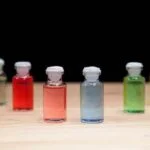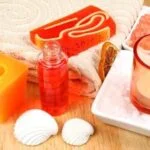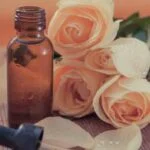The integumentary system, composed of the skin, hair, nails, and glands, serves as the body’s first line of defense against external factors. In this article, we will explore the effects of aromatherapy on the integumentary system, specifically focusing on how essential oils can impact the health and appearance of the skin.
Aromatherapy is a holistic healing treatment that uses natural plant extracts to promote physical and mental well-being. When applied topically or inhaled, essential oils from aromatherapy can directly affect the skin’s health and function. From treating acne to reducing inflammation, aromatherapy has been shown to have numerous benefits for maintaining healthy skin.
By understanding how aromatherapy interacts with the integumentary system, individuals can harness the power of essential oils to address various skin conditions and improve overall skin health. In the following sections, we will delve into specific essential oils known for their skincare benefits, explore case studies showcasing before-and-after results of aromatherapy treatments on different skin issues, and provide safety precautions and DIY recipes for incorporating aromatherapy into your skincare routine.
Overview of Aromatherapy
Aromatherapy is a holistic healing treatment that uses natural plant extracts to promote health and well-being. The practice of aromatherapy dates back thousands of years, with essential oils extracted from various plants being used for their therapeutic properties. These essential oils can be inhaled, applied to the skin, or even ingested in some cases. Aromatherapy is known for its ability to impact not just our mental and emotional well-being but also our physical health, including the integumentary system.
When it comes to the effects of aromatherapy on the integumentary system, essential oils can play a vital role in maintaining healthy skin. The integumentary system consists of the skin, hair, nails, and glands, all of which are highly receptive to the benefits of aromatherapy.
Depending on the specific essential oil used, aromatherapy can help soothe irritated skin, reduce inflammation, combat acne-causing bacteria, and even promote collagen production for anti-aging effects. These oils are often used in skincare products as well as in massage therapy to target various skin concerns effectively.
Research has shown that certain essential oils have a direct impact on the integumentary system’s health and function. For example, lavender oil is renowned for its calming and healing properties and can help alleviate skin conditions such as eczema and psoriasis.
Tea tree oil is known for its antibacterial and antifungal properties, making it an excellent choice for treating acne and other bacterial-related skin issues. By understanding how different essential oils work and incorporating them into your skincare routine or massage therapy sessions, you can harness the full potential of aromatherapy for your skin’s health and vitality.
| Essential Oil | Benefits |
|---|---|
| Lavender Oil | Calming & healing properties; alleviates eczema & psoriasis |
| Tea Tree Oil | Antibacterial & antifungal properties; treats acne & bacterial-related issues |
How Aromatherapy Impacts the Skin
The integumentary system, which consists of the skin, hair, nails, and glands, plays a crucial role in protecting the body from external factors such as pathogens and UV radiation. The skin is the largest organ in the human body and serves as a barrier against harmful substances.
Aromatherapy, a holistic healing treatment using essential oils extracted from plants, has been gaining popularity for its various therapeutic benefits. When it comes to the integumentary system, aromatherapy can have profound effects on the skin.
One way that aromatherapy impacts the skin is through its ability to nourish and hydrate it. Essential oils like lavender, rosehip, and sandalwood are known for their moisturizing properties that can help improve skin texture and prevent dryness. Additionally, certain essential oils have anti-inflammatory and antibacterial properties that can aid in treating acne, eczema, and other skin conditions. By incorporating these oils into skincare routines or treatments, individuals can experience healthier and more radiant skin.
To maximize the effects of aromatherapy on the integumentary system, it is important to understand how different essential oils interact with various skin types. Some oils may be too harsh for sensitive skin while others might be more suitable for oily or combination skin.
It is recommended to perform a patch test before using any new essential oil on the skin to avoid potential allergic reactions or irritations. Consulting with a dermatologist or an aromatherapy expert can also provide guidance on choosing the right essential oils for individual skin concerns.
- Essential oils like tea tree oil and chamomile are excellent for soothing irritated or inflamed skin.
- Citrus-based essential oils such as lemon or grapefruit can help brighten dull skin and reduce hyperpigmentation.
- For aging skin concerns, consider using frankincense or rosemary essential oils known for their anti-aging properties.
Top Essential Oils for Skin Health
Lavender Oil
Lavender oil is a popular choice for skincare due to its versatile benefits. It has anti-inflammatory properties that can help soothe skin irritations and reduce redness. Additionally, lavender oil is known for its calming effects on the skin, making it ideal for those with sensitive skin or conditions like eczema or psoriasis. When used in aromatherapy, lavender oil helps promote relaxation, which can indirectly benefit the integumentary system by reducing stress-related skin issues.
Tea Tree Oil
Tea tree oil is a powerful essential oil known for its antibacterial and antifungal properties. When applied topically, it can help combat acne and other skin infections by targeting bacteria that cause breakouts. In aromatherapy, tea tree oil can also help alleviate itching and inflammation associated with various skin conditions. Used wisely and in diluted form, tea tree oil can be an effective addition to your skincare routine.
Rosehip Seed Oil
Rosehip seed oil is rich in antioxidants and essential fatty acids that are beneficial for the skin’s health. It helps nourish and hydrate the skin while promoting cell regeneration and improving elasticity. When used in aromatherapy, rosehip seed oil can enhance the overall appearance of the skin by reducing the signs of aging, such as fine lines and wrinkles. Its rejuvenating properties make it a valuable ingredient in natural skincare products aimed at promoting healthy integumentary system function.
Incorporating these essential oils into your skincare routine can have positive effects on the integumentary system by addressing various skin concerns and promoting overall skin health. Whether used topically or through aromatherapy methods, these oils offer a natural approach to maintaining healthy and radiant skin.
Case Studies
Aromatherapy has been increasingly recognized for its positive effects on the integumentary system, which includes the skin, hair, nails, and glands. Through the use of essential oils derived from plants, aromatherapy can address a wide range of skin conditions and promote overall skin health. In case studies evaluating the before and after effects of aromatherapy on various skin conditions, significant improvements have been observed.
Listed below are some examples of how aromatherapy has transformed individuals’ skin health:
- Reduction in acne breakouts: Essential oils like tea tree oil and lavender have antimicrobial properties that can help combat acne-causing bacteria. Regular use of these oils in a carrier oil base can lead to a decrease in inflammation, redness, and breakouts.
- Improvement in eczema symptoms: Conditions like eczema can cause itching, dryness, and irritation on the skin. Oils such as chamomile and geranium have soothing and anti-inflammatory properties that can alleviate these symptoms when applied topically or through inhalation.
- Healing of wounds and scars: Essential oils like helichrysum and frankincense are known for their ability to promote cell regeneration and fade scars over time. By incorporating these oils into skincare routines, individuals have noticed accelerated healing of wounds and a reduction in scar visibility.
These case studies highlight the effectiveness of aromatherapy on various skin conditions. It is essential to note that individual responses may vary, so it is recommended to consult with a healthcare professional or aromatherapist before incorporating aromatherapy into your skincare regimen.
Safety Precautions When Using Aromatherapy for Skin
When using aromatherapy for skin care, it is essential to take certain safety precautions to ensure the best results and to prevent any adverse effects. One of the key safety measures is to always dilute essential oils properly before applying them to the skin. Undiluted essential oils can be too potent and may cause irritation, redness, or even allergic reactions, especially on sensitive skin.
Another important precaution to keep in mind is performing a patch test before using any new essential oil on a larger area of the skin. A patch test involves applying a small amount of diluted essential oil on a small area of skin and waiting for at least 24 hours to check for any adverse reactions. This helps in identifying any potential sensitivities or allergies you may have to certain essential oils.
Furthermore, it is crucial to avoid sun exposure after applying photosensitive essential oils on the skin. Some citrus essential oils, such as bergamot or lime, can cause phototoxic reactions when exposed to sunlight, leading to burns or hyperpigmentation.
It is recommended to use these oils in the evening or when you know you will not be exposed to sunlight for several hours after application. By following these safety precautions, you can enjoy the benefits of aromatherapy for healthy skin without causing any harm or discomfort.
DIY Aromatherapy Skin Care Recipes
Aromatherapy can be a wonderful addition to your skincare routine, providing numerous benefits for the integumentary system. Creating your own DIY aromatherapy skin care products allows you to tailor them to your specific needs and preferences. From promoting healthy skin to addressing various skin concerns, these recipes can help you harness the power of essential oils for glowing, radiant skin.
Hydrating Facial Mist
To create a hydrating facial mist, simply combine distilled water with a few drops of lavender essential oil and rose essential oil in a spray bottle. Lavender helps soothe and calm the skin, while rose promotes hydration and adds a pleasant aroma. Spritz this refreshing mist on your face throughout the day to keep your skin moisturized and revitalized.
Exfoliating Sugar Scrub
For a gentle yet effective exfoliator, mix sugar with coconut oil and add a few drops of tea tree essential oil. Tea tree oil has antibacterial properties that can help combat acne-prone skin while sugar gently buffs away dead skin cells. Use this scrub once or twice a week to reveal smoother, brighter skin.
Soothing Body Lotion
Create a calming body lotion by blending shea butter with jojoba oil and adding chamomile essential oil. Shea butter provides deep hydration, while jojoba oil mimics the skin’s natural oils for easy absorption. Chamomile is known for its anti-inflammatory properties, making this lotion perfect for soothing irritated or sensitive skin. Apply it after showering to lock in moisture and promote soft, supple skin.
By incorporating these DIY aromatherapy skin care recipes into your daily routine, you can experience the positive effects of aromatherapy on the integumentary system firsthand. Not only will your skin look healthier and more radiant, but you’ll also enjoy the therapeutic benefits of essential oils in your self-care regimen.
Expert Tips for Maximizing the Effects of Aromatherapy on the Integumentary System
The integumentary system is comprised of the skin, hair, nails, and glands that work together to protect the body from external factors. When it comes to harnessing the power of aromatherapy on the integumentary system, there are several expert tips that can help maximize its effects. One important tip is to choose high-quality essential oils that are pure and free from any synthetic additives or dilution. Pure essential oils are more potent and effective in treating various skin conditions.
Another key tip for maximizing the effects of aromatherapy on the integumentary system is to dilute essential oils with a carrier oil before applying them to the skin. Carrier oils like coconut oil, jojoba oil, or almond oil help reduce the risk of skin irritation or sensitization.
It is essential to perform a patch test before using any new essential oil to ensure that it does not cause any adverse reactions on the skin. This step can help prevent allergic reactions or irritation.
In addition, incorporating aromatherapy into your skincare routine consistently can yield better results for overall skin health. Whether you use essential oils in a diffuser, mix them into your lotions or creams, or add them to your bath water, regular use can promote healthier skin. By following these expert tips and being mindful of safety precautions, individuals can fully experience the beneficial effects of aromatherapy on the integumentary system while maintaining healthy and glowing skin.
| Expert Tips | Benefits |
|---|---|
| Choose high-quality essential oils | Pure and effective treatment for skin conditions |
| Dilute with carrier oils | Reduce risk of skin irritation |
| Incorporate into skincare routine | Promote overall healthier skin |
Conclusion
In conclusion, the integumentary system plays a vital role in protecting our body and maintaining overall health. Aromatherapy, with its use of essential oils derived from plants, has shown promising effects on the integumentary system. By understanding how aromatherapy impacts the skin, individuals can utilize this natural approach to promote healthy skin and address various skin conditions.
Through the careful selection of essential oils known for their benefits to the skin, such as lavender for soothing inflammation or tea tree oil for combating acne, individuals can tailor their skincare routine to meet their specific needs. Case studies have demonstrated the before and after effects of aromatherapy on various skin conditions, showcasing the potential of this holistic approach in improving skin health.
When incorporating aromatherapy into skincare routines, it is important to follow safety precautions to prevent any adverse reactions. By utilizing DIY aromatherapy skin care recipes and expert tips for maximizing the effects of aromatherapy on the integumentary system, individuals can harness the power of nature to achieve radiant and healthy skin. With further research and exploration of aromatherapy’s impact on the integumentary system, we can continue to unlock its full potential in promoting overall well-being through healthy skin.
Frequently Asked Questions
What System Does Aromatherapy Affect?
Aromatherapy primarily affects the limbic system in our brains, which is responsible for emotions, memories, and behavior. When we inhale essential oils, they can trigger responses in this system, influencing our overall well-being.
Is Aromatherapy Good for Skin?
Aromatherapy can be beneficial for the skin when used properly. Some essential oils have antimicrobial properties that can help with acne or other skin conditions. They can also provide hydration and nourishment to the skin when diluted in carrier oils.
What Are the Physiological Effects of Aromatherapy?
The physiological effects of aromatherapy are diverse and can include reducing stress and anxiety levels, improving sleep quality, boosting energy levels, alleviating headaches and migraines, easing muscle tension, enhancing relaxation, and even improving cognitive function. These effects are typically achieved through inhalation or absorption of essential oils into the body.

Are you looking for a natural way to improve your health and wellbeing?
If so, aromatherapy may be the answer for you.





